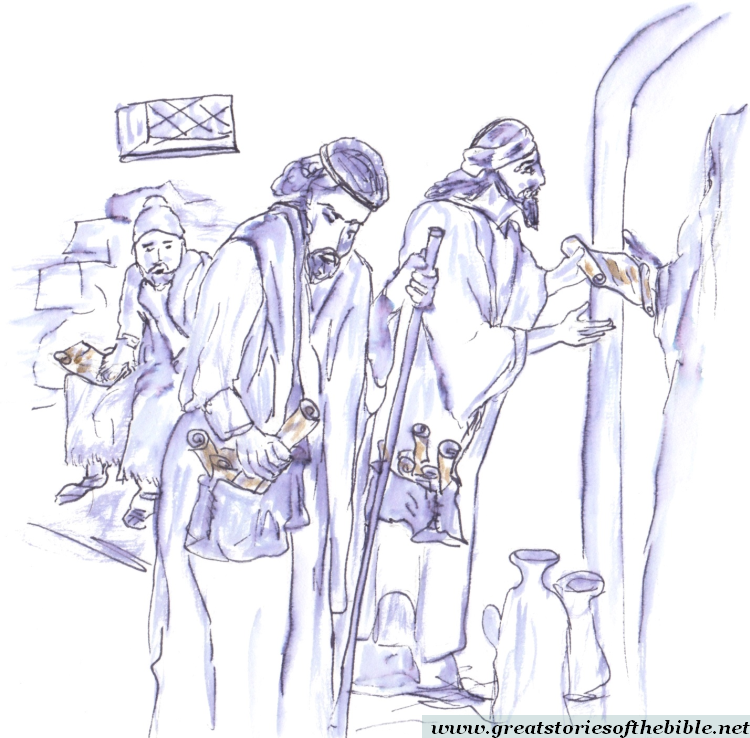Second letter to the Corinthians
I will glory in my weaknesses
Paul writes the second letter to the Corinthians by the end of his third missionary journey, probably while he is in Macedonia (several ancient manuscripts report that the place of composition is “Philippi”); like the 1Cor we cannot give a precise date for its composition: it goes from 54 AD to the beginning of 58 AD. The main theme of the writing is Paul’s defense about his apostolic ministry: we can find it in the first (chapters 1-7) and in the third part of the letter (chapters 10-13). In fact, while he was absent, some Christian missionaries of Jew origin (see 2Cor 11,22) went in Corinth and disturbed the fragile balance of an already quarrelsome community. They announced «another Jesus, whom we did not proclaim» (2Cor 11,4), criticizing Paul’s behavior («For, “His letters,” they say, “are weighty and strong, but his bodily presence is weak, and his speech is despised.”»: 2Cor 10,10) and insinuating that he would preach the Gospel for his profit (see 2Cor 11,7-10). The central part of the letter (chapters 8-9), instead, is about the collection for the Jerusalem Church, that is in tight circumstances. It is interesting to note the vocabulary Paul uses to describe that good deed («grace»: 2Cor 8,6; “blessing”: 2Cor 9,5; “liturgy”: 2Cor 9,12): as we wrote in the last post, the first Christians consider a true worship to God the sanctity of life, that they express with the free love to the poorest and the neediest people and not only with mere religious practices. Even in 2Cor Paul cites a previous letter that did not arrive to us (see 2,3-4; 7,8-9).
We report some extracts of both themes that we find in the second letter to the Corinthians. «For we are not, like so many, peddling [exploiting for money and “watering down” as the dishonest landlord] the word of God. But as of sincerity, but as of God, in the sight of God, we speak in Christ. [...] Are we beginning again to commend ourselves? We do not need, as do some, letters of commendation to you or from you, do we? You are our letter, written in our hearts, known and read by all men; being revealed that you are a letter of Christ, served by us, written not with ink, but with the Spirit of the living God; not in tablets of stone, but in tablets that are hearts of flesh. [...] We give no occasion of stumbling in anything, that our service may not be blamed, but in everything commending ourselves, as servants of God, in great endurance, in afflictions, in hardships, in distresses, in beatings, in imprisonments, in riots, in labors, in watchings, in fastings; in pureness, in knowledge, in patience, in kindness, in the Holy Spirit, in sincere love, in the word of truth, in the power of God; by the armor of righteousness on the right hand and on the left, by glory and dishonor, by evil report and good report; as deceivers, and yet true; as unknown, and yet well known; as dying, and behold, we live; as punished, and not killed; as sorrowful, yet always rejoicing; as poor, yet making many rich; as having nothing, and yet possessing all things. Our mouth is open to you, Corinthians. Our heart is enlarged. You are not restricted by us, but you are restricted by your own affections. Now in return, I speak as to my children, you also be open wide. [...] Open your hearts to us. We wronged no one. We corrupted no one. We took advantage of no one. I say this not to condemn you, for I have said before, that you are in our hearts to die together and live together» (2Cor 2,17; 3,1-3; 6,3-13; 7,2-3).
«But as you abound in everything, in faith, utterance, knowledge, all earnestness, and in the love from us that is in you, see that you also abound in this grace [the collection for the Church of Jerusalem]. I speak not by way of commandment, but as proving through the earnestness of others the sincerity also of your love. For you know the grace of our Lord Jesus Christ, that, though he was rich, yet for your sakes he became poor, that you through his poverty might become rich. [...] Let each man give according as he has determined in his heart; not grudgingly, or under compulsion; for God loves a cheerful giver» (2Cor 8,7-9; 9,7).
In chapter 12 Paul writes the answer the Lord gave him to the request of being freed from a persistent difficulty (we do not know the exact nature of the difficulty). «“My grace is sufficient for you, for power is made perfect in weakness.” Most gladly therefore I will rather glory in my weaknesses, that the power of Christ may rest on me. Therefore I take pleasure in weaknesses, in injuries, in necessities, in persecutions, in distresses, for Christ’s sake. For when I am weak, then am I strong» (2Cor 12,9-10). They are apparently disconcerting statements, which however conform well to the strange election criteria of the Bible God. «But God chose the foolish of the world to shame the wise. And God chose the weak of the world to shame the strong. And God chose the lowly of the world, and the despised, what is considered to be nothing, to bring to nothing what is considered to be something, that no flesh might boast before God» (1Cor 1,27-29). The human weakness becomes the privileged space where the Lord’s great works manifest (do you remember Abraham, Jacob, Joseph, Moses, David, the Prophets, Jesus Himself?); this can be indeed a valid answer to the criticisms by Paul’s detractors.
In the next post we will read the letter to the Galatians.